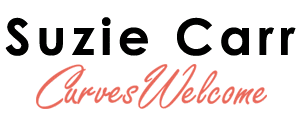Then one day, pushing criticism aside, I got brave and recorded a short video from part of an essay I wrote. It was about getting uncomfortable. I went a step further and posted it on Facebook. That same day, Sheena, the founder of the Lesbian Talk Show messaged me and asked me to consider starting a podcast on personal development that could then fall under her umbrella of other podcast shows. I was floored. I was truly shocked that anyone, especially someone as smart and on the ball as Sheena, would ever consider my voice to be one she’d like to hear more often.
She offered me the nudge, and I took it. I took it because I realized that I wanted to grow as a person and also as an orator. Naturally, I may not have the best voice for podcasting, but what I do have is the heart for it. I have a burning desire to learn things and share them through my podcast.
My ‘lisp’ is secondary to that. I have a voice. That’s what matters here. I can open my mouth and form words. For that I am truly grateful. I allowed the hurt of another person’s opinion to rattle me. That almost stopped me from experiencing one of my greatest joys in life now, which is podcasting.
Criticism Hurts
Criticism can hurt like hell when we let it stop us instead of let it mold us into someone we are meant to be. That person who called me out on my lisp, and anyone for that matter, is entitled to her opinion. How she chooses to deliver that opinion is no business of mine. It truly isn’t. That’s her call. What is my call is what I choose to do with what is delivered to me.
Do I ignore it? Should I digest it? Do I let it stop me? Or, do I let it bring awareness?
What do you do when someone criticizes you? This is a question that challenged me for a long time. I get hurtful reviews on my books, too, not just my lisp. What do I do with those? Do I let them cause me pain? Do I stop writing? Or do I use them as a tool to grow?
Yeah, that’s hard to do. To look at criticism as a tool for growth. When someone slings hurt your way, the first reaction you want to take is to sling it right back, right? The ego gets involved and says, how dare you treat me this way? How dare you insult me?
A New Approach
But, what if you took a different approach? What if instead of slinging it back in an attempt to protect yourself from hurt, you put it aside for a while until your emotions cooled? Then, when they’re nice and cool you approach it again through a new lens, a lens of objectivity and discovery.
You’re probably thinking, hey wait a minute, this person just ripped me into a million pieces, and publicly no less, and you want me to discover something through a lens of objectivity? What are you nuts?
I guess maybe I am a little nuts. Hahaha
A Consideration
Let’s think about criticism in more detail. Someone rips your novel apart on Amazon. I mean they don’t just say meh, I didn’t like it. No, they go deep. They stick their sharp opinions in there and twist it. She mangles your hard work until it hurts. Now, you might possibly be crying in a heap on your bed because your life work’s just been murdered by a mean stranger with no filter. This person’s seemingly only purpose in life is to see that your career as a writer ends immediately. That no other person on this planet ends up subjecting themselves to reading the words you labored over and shared.
I’m aware of how melodramatic I sound currently. It is melodramatic. And it’s exactly how I used to feel as a writer whenever a bad review sailed in. It destroyed me for days, and it wouldn’t be a stretch to say sometimes for a week or more. I’d stop writing thinking I was the worst writer in the world and had no right to put my ideas down on paper and sell them.
I am completely aware of how ridiculous that sounds, and thank God I am aware.
I wasn’t always so aware. (Hahahaha) It took many bad reviews, crying fits, and pity-parties to realize that beneath that hurt was opportunity.
Opportunity
Yup you read that correctly. There’s always opportunity everywhere, especially in criticism. I’ve grown the most from criticism. If it weren’t for the many reviewers being hurtful in those early days, I wouldn’t be nearly as regimented as I am today. I wouldn’t have a team of beta readers and two editors and a lengthy personal review process before I hit publish. Also, I wouldn’t have gone back over and had all my earlier novels re-edited like I had. I wouldn’t have known I had things to learn about this writing gig I’m in. Without criticism, I wouldn’t have realized my mistakes.
The greatest answers you’ll ever find, are usually hidden in the hurtful truths of criticism.
I am happy that I finally learned to read between the lines of critiques and find the truths hidden in them. There are so many valuable things reviewers have taught me. And the only way I was able to learn and grow from these reviews was by being open to hearing the truth and finding a way to improve.
I’m listening to a book by Ray Dalio called Principles. There’s a strong truth he reveals in chapter five when he talks about being open to critique. He says that to be successful, you must be radically open, truthful and transparent about your weaknesses. It’s only by awareness that we can learn and grow and find real solutions.
Here’s the Thing
You can’t control how someone gives their feedback. But you can control how you receive it. The best thing I ever did was learn to shed my ego when receiving critique. It’s a rule of mine to put it aside and listen to what someone is trying to say. If it’s a personal attack, and I truly can’t find fact in what someone is saying, then I don’t pay any mind to it. Like the reviewer attacking my lisp. It was personal for me. What did I learn after I put my ego aside? That I am stronger as a writer than a narrator.
I totally get this now. And I’m totally okay with this. I could’ve gone to great lengths to train myself and get rid of my lisp. But, you know what? I didn’t truly desire that. It’s not my dream to focus on narration. It actually was the hardest thing I’ve ever done. I’m not an actress. So what this taught me was maybe there are better people out there who enjoy narrating more than I do that would better serve my novels by reading instead of me. And I’m okay with this.
As far as podcasting with a lisp. I’m okay with that too. You see, I’m not podcasting to win vocal awards. Essentially, I’m podcasting because I’m passionate about sharing ideas that I learn. That’s where my focus is now, not on whether my lisp is annoying people or not.
The Real Point
Find what you love to do, do it with all your heart, be radically open to critique, and learn as much as you can from people. Do this so you can continuously improve your skill and nurture the love it brings you.
Always seek the lesson and you’ll find the insights you need to keep moving forward in this great big game of life.
Over to you. Has your view on criticsm helped or hurt you in the past?
Wishing you the very best,
Suzie Carr, Author of Amazon #1 Bestselling Sapphic Romance novel, The Curvy Side of Life


